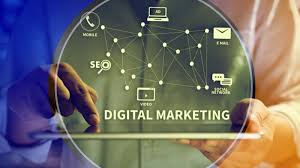No products in the cart.
In the ever-evolving landscape of digital marketing, Pay-Per-Click (PPC) advertising remains a stalwart strategy. As we step into 2024, it’s essential to assess whether PPC is still a viable and effective approach for businesses. Let’s delve into the world of PPC marketing, explore its benefits, and determine its relevance in the current digital ecosystem.

Introduction to PPC Marketing
PPC marketing is a model where advertisers pay a fee each time their ad is clicked. It’s an auction-based system where businesses bid on specific keywords relevant to their products or services. When a user searches for those keywords, the ad appears prominently on search engine results pages (SERPs) or other online platforms. Here are some key points to understand about PPC:
- Instant Visibility: Unlike organic search, where it takes time to climb the rankings, PPC ads provide immediate visibility. As soon as you set up your campaign, your ads can appear at the top of SERPs, driving targeted traffic to your website.
- Budget Control: With PPC, you have full control over your spending. You set a daily or monthly budget, ensuring that you don’t overspend. Additionally, you only pay when someone clicks on your ad, making it a cost-effective method.
- Highly Targeted: PPC allows precise targeting based on factors such as location, demographics, interests, and device type. You can tailor your ads to reach the most relevant audience.
- Conversion Tracking: Robust conversion tracking tools enable you to measure the effectiveness of your campaigns. You can track clicks, conversions, and other valuable metrics to optimize your strategy.
The Benefits of PPC Marketing
1. Consistent and Immediate Results
PPC delivers consistent and immediate results. As soon as your campaign goes live, your ads start appearing, driving traffic to your website. Unlike SEO, which requires time for optimization and ranking, PPC provides instant visibility.
2. Increased Revenue
Effective PPC campaigns lead to increased revenue. By targeting high-intent keywords, you attract users who are actively searching for your products or services. When done right, PPC drives qualified leads, resulting in more conversions and sales.
3. Control Your Spend
PPC allows you to control your spending. Set a daily or monthly budget, adjust bids, and allocate resources strategically. Whether you’re a small business or a large corporation, PPC accommodates various budgets.
4. Highly Targeted
Precision is the hallmark of PPC. You can target specific demographics, interests, and behaviors. Whether you want to reach local customers or a global audience, PPC lets you tailor your ads accordingly.
5. Greater Conversion Rates
PPC often boasts higher conversion rates compared to other channels. Users who click on your ads are likely interested in your offerings. Effective landing pages and compelling calls-to-action enhance the chances of conversion.
The Wrap Up
In conclusion, PPC marketing remains relevant in 2024. Its agility, precision, and ability to deliver immediate results make it indispensable for businesses. However, staying updated with emerging trends, such as AI-driven automation and personalization, is crucial. As the digital landscape evolves, smart marketers will continue to leverage PPC to drive growth and achieve their business goals.
So, if you’re wondering whether PPC is still worth it, the answer is a resounding yes. Embrace PPC, optimize your campaigns, and watch your business thrive in the competitive digital arena.

